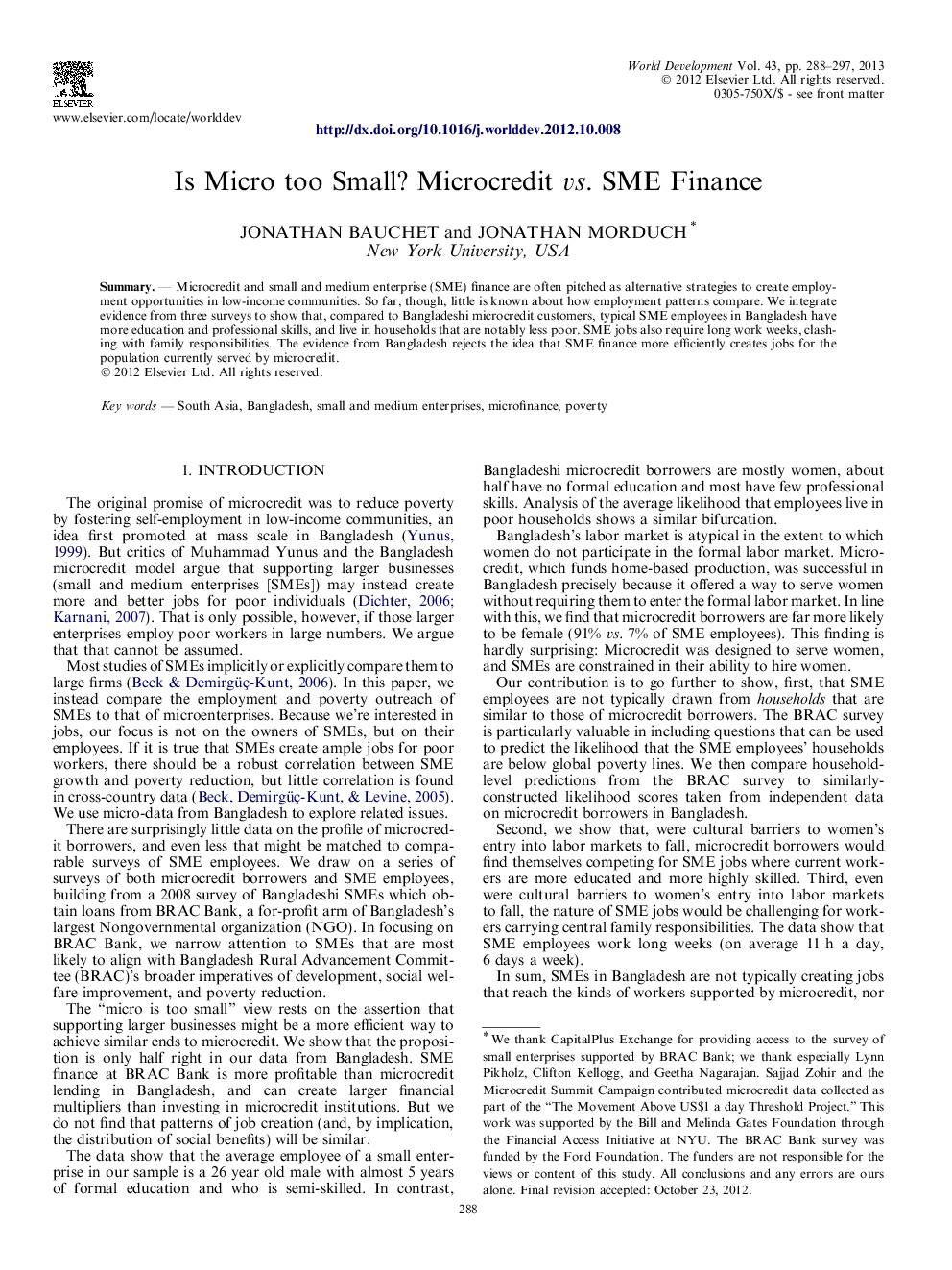| Article ID | Journal | Published Year | Pages | File Type |
|---|---|---|---|---|
| 7395633 | World Development | 2013 | 10 Pages |
Abstract
Microcredit and small and medium enterprise (SME) finance are often pitched as alternative strategies to create employment opportunities in low-income communities. So far, though, little is known about how employment patterns compare. We integrate evidence from three surveys to show that, compared to Bangladeshi microcredit customers, typical SME employees in Bangladesh have more education and professional skills, and live in households that are notably less poor. SME jobs also require long work weeks, clashing with family responsibilities. The evidence from Bangladesh rejects the idea that SME finance more efficiently creates jobs for the population currently served by microcredit.
Related Topics
Social Sciences and Humanities
Economics, Econometrics and Finance
Economics and Econometrics
Authors
Jonathan Bauchet, Jonathan Morduch,
